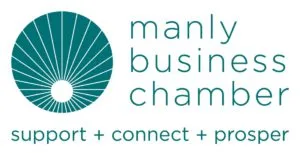How to be an effective mentor in the workplace
Mentors have existed since time immemorial. Many claim that the word derives from the name of a character in The Odyssey, an ancient Greek epic poem that was probably composed around 700BC. The elderly Mentor was a great friend of Odysseus and trusted advisor to his young son Telemachus. Similarly, today mentors are often senior figures entrusted with providing advice to younger, more inexperienced employees. The aim: to help their mentees progress within their role, within their organisation, and – ultimately – within their chosen industry sector.
Mentoring can have significant benefits for the organisation, notably in terms of promoting a positive company culture, enhancing productivity and improving employee retention. Both mentor and mentee also stand to gain from a successful mentoring relationship through open, honest communication and feedback. Here are a few tips on how to get it right as a mentor:
Set a clear framework from the outset
In consultation with your mentee, decide how often you will meet and for how long. Also consider which communication channels you wish to use between meetings. Will your door always be open to your mentee, or would you prefer to receive emails from her on a particular day at a particular time?
Define goals together
Discuss and decide your mentee’s personal and professional goals with her. Your mentee’s input is a crucial part of this conversation; your role is to guide and support her in implementing a plan to achieve these goals.
Listen and learn from each other
It is often said that the mentor/mentee relationship is a ‘two-way street’ where the mentor has just as much to learn from the relationship as the mentee. Give your mentee the opportunity to express herself openly and honestly. Every individual has different ways of thinking and doing – and you may pick up an invaluable tip or two!
Let your mentee make mistakes
Provide honest, constructive feedback to your mentee, but allow her to follow her own vision and make mistakes. Learning from errors is essential to personal and professional development. Help your mentee analyse what went wrong and she’ll be able to move forward with confidence.
Be a positive role model
Lead by example not just in the mentor/mentee relationship, but in the wider workplace by demonstrating confidence, respect for others and clear, open communication. Celebrate your successes with your colleagues, but also share your failures. They show what you have overcome to reach the place you are today and will provide your mentee – and others – with a realistic perspective.
Being a mentor is both a privilege and a responsibility. Done right, it can benefit mentee, mentor and the wider business organisation.



















Leave a Reply
Want to join the discussion?Feel free to contribute!